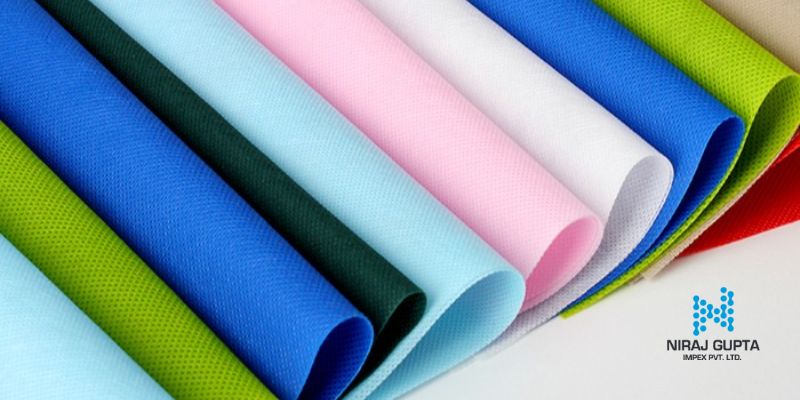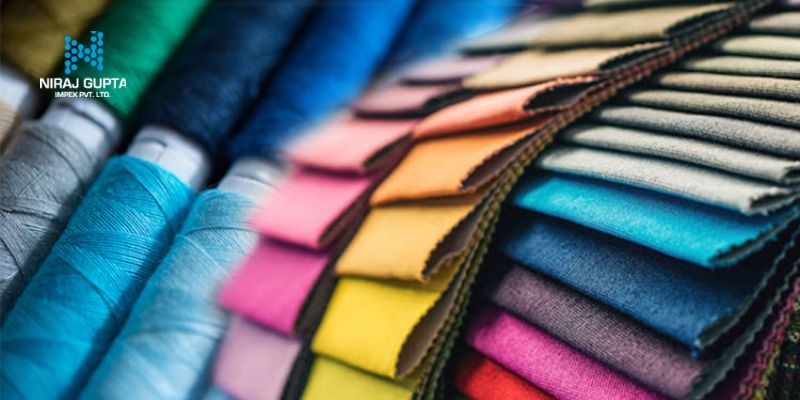The Importance of Textile Indentors in Facilitating International Trade in India's Textile Sector
India's textile industry has long been the backbone of the nation's economy, providing employment to millions and contributing significantly to the country's GDP. To maintain and enhance its global competitiveness, India's textile sector needs to navigate the complexities of international trade efficiently. This is where textile indentors play a pivotal role. In this blog post, we will delve into the significance of textile indentors in facilitating international trade and driving growth in India's textile industry.
Understanding Textile Indentors
Textile indentors, also known as commission agents or sourcing agents, are intermediaries who act as a bridge between textile manufacturers and buyers in the international market. They are crucial in ensuring a smooth and efficient exchange of goods between different countries. These professionals have a deep understanding of the textile industry, including fabrics, raw materials, and production processes.
Market Knowledge and Expertise
One of the primary advantages of working with textile indentors is their extensive market knowledge and expertise. They have a thorough understanding of global textile trends, demand patterns, and emerging markets. This knowledge allows them to connect Indian textile manufacturers with the right international buyers, ensuring that products are tailored to meet specific market demands.
Risk Mitigation
Navigating international trade can be complex and fraught with potential risks. Textile indentors act as risk mitigators by vetting both manufacturers and buyers, ensuring that they are reliable and have a track record of successful transactions. This reduces the likelihood of disputes or failed transactions, providing security for both parties.
Quality Assurance
Maintaining consistent quality is paramount in the textile industry. Textile indentors play a crucial role in quality assurance by thoroughly inspecting the products before they are shipped. They ensure that the products meet international standards and specifications, thus enhancing the reputation of Indian textiles in the global market.
Negotiation and Pricing
Textile indentors are skilled negotiators who work to secure the best possible deals for both manufacturers and buyers. They have a deep understanding of pricing dynamics in the global textile market and can help establish competitive pricing strategies. This ensures that Indian textile products remain competitive and attractive to international buyers.
Supply Chain Efficiency
Efficient supply chain management is critical for the success of any international trade operation. Textile indentors are crucial in streamlining the supply chain process by coordinating production scheduling, packaging, and shipping logistics. This leads to faster and more reliable delivery of products, enhancing customer satisfaction.
Cultural and Linguistic Expertise
International trade often involves dealing with partners from different cultural and linguistic backgrounds. Textile indentors, with their knowledge of various cultures and languages, serve as effective intermediaries in bridging communication gaps. This cultural sensitivity helps in building strong, long-lasting business relationships.
Market Expansion and Diversification
Textile indentors help Indian manufacturers expand into new and diverse markets. Through their extensive network and market research, they identify untapped opportunities and potential buyers in different regions. This market diversification not only helps reduce dependence on a single market but also enhances the resilience of the textile industry to global economic fluctuations.
Compliance and Regulatory Knowledge
International trade involves compliance with various regulations and standards set by different countries. Textile indentors possess in-depth knowledge of these regulatory requirements, including customs procedures, labelling standards, and product certifications. This ensures that Indian textile products meet all necessary compliance criteria, minimizing the risk of delays or rejections at the borders.
Trend Forecasting and Innovation
Staying ahead of industry trends and technological advancements is crucial for maintaining a competitive edge. Textile indentors keep abreast of the latest developments in textile technology, fashion trends, and sustainability practices. This knowledge allows them to guide manufacturers in adopting innovative approaches and producing textiles that align with current market demands.
Market Feedback and Consumer Insight
Textile indentors act as a valuable feedback loop between manufacturers and consumers. They gather insights on consumer preferences, feedback on product quality, and market trends. This information is invaluable for manufacturers to make informed decisions on product improvements and adaptations to meet evolving consumer demands.
Dispute Resolution and Conflict Management
In disputes or disagreements between manufacturers and buyers, textile indentors play a crucial role in mediating and finding amicable resolutions. Their experience in handling negotiations and conflicts ensures that business relationships are maintained, and transactions proceed smoothly, preserving the reputation of Indian textile exports.
Sustainable and Ethical Sourcing
With an increasing global focus on sustainability and ethical sourcing, textile indentors can guide manufacturers in adopting environmentally friendly practices. They help identify sustainable raw materials, production methods, and supply chain partners, ensuring that Indian textiles meet international standards for responsible and eco-conscious manufacturing.
Adapting to Cultural Preferences
Different regions have distinct cultural preferences when it comes to textiles. Textile indentors understand these nuances and can advise manufacturers on design, colour, and style choices that resonate with specific target markets. This cultural sensitivity enhances the marketability of Indian textiles worldwide.
Conclusion
In conclusion, textile indentors facilitate international trade in India's textile sector. Their expertise, market knowledge, risk mitigation strategies, and supply chain management skills contribute significantly to the growth and success of the industry. By leveraging the services of textile indentors, Indian textile manufacturers can tap into global markets with confidence, ensuring a sustainable and prosperous future for the sector.





Comments
Post a Comment